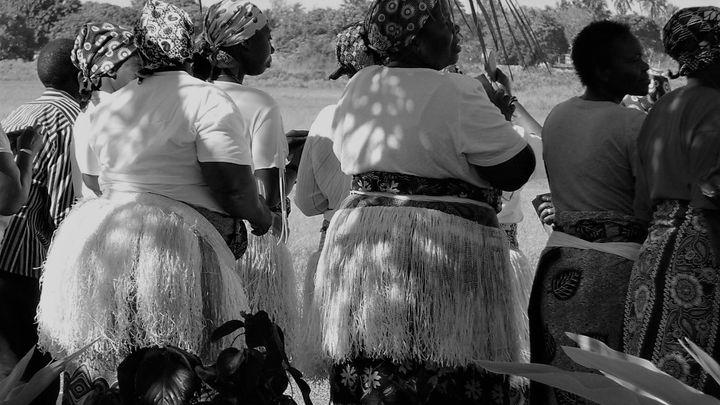
RAPE--A HISTORY OF SHAME PROJECT
Donation protected
https://bit.ly/2qA3Sv7
My Grandma, a Polish Jew, was a Holocaust survivor. In her teens, she spent two years at a German Nazi concentration camp, where she was forced to undergo medical experiments. Then, upon “liberation,” a Red Army soldier raped her. Decades later, she revealed her traumatic story to me, piece by piece.
-- Wiola Rebecka
Inspired by my Grandma’s story, I am leading a project about and for Rwanda’s women.
Many of them were also raped in a war zone, amidst genocide. They are still grappling with the aftermath.
However, this project’s quintessence applies to women all over the world.
Project Mission
Raise awareness about psychological, social, and cultural consequences of rape
Treat the effects of rape-related trauma
Counter the stigmatization of rape survivors
This project focuses on shame as it relates to rape.
Shame is among the main effects of rape. It shifts the responsibility for committed crimes from perpetrators to victims.
But understanding and facing shame is also a key to treating rape-related trauma.
Shame is the strongest inhibiting factor that hinders therapy for rape survivors.
Rape survivors assume full responsibility for the traumatic event that happened to them.
Their sense of shame is sustained even further by cultural, social, and religious influences.
Speaking openly about rape-related shame is the first step in the treatment of trauma caused by rape.
Story-telling, which is Rwanda’s traditional form of communication, but also a technique used in professional psychoanalysis, will help bring rape survivors’ experiences into the open.
Wiola Rebecka
Feminist
Psychoanalyst
University teacher
Traveler
Human rights activist
Photography lover
IPA APSA CAPA WTCI
Psychoanalyst Wiola Rebecka will
Travel to Rwanda
Speak with genocide and rape survivors
Listen to survivors and collect their stories
Lead therapy workshops
Deliver a presentation
Assist local counselors in developing skills and ideas for local help groups
Nima Taradiji
An Iranian-American editorial and documentary photographer.
His attention is drawn to the cultural, social, and political landscape of our society.
He photographs people he finds important. His photos explore stories from all over the world. His work highlights vital issues that would otherwise remain obscure.Nima Taradji will create portraits of rape survivors in Rwanda and USA. Looking into the lens of a camera and showing their faces, rape survivors will overcome their feeling of shame. They will counter the society’s tendency to shame the victims. Thus photography will fight secondary victimization.Portraits of rape survivors will be featured at an exhibit, sponsored by the Women’s Therapy Centre Institute and the One Million Lives Foundation. Wiola Rebecka will curate the exhibit. The exhibit will highlight rape survivors’ stories. It will be shown in NYC, but may travel to other cities.
A book may follow.
My Grandma, a Polish Jew, was a Holocaust survivor. In her teens, she spent two years at a German Nazi concentration camp, where she was forced to undergo medical experiments. Then, upon “liberation,” a Red Army soldier raped her. Decades later, she revealed her traumatic story to me, piece by piece.
-- Wiola Rebecka
Inspired by my Grandma’s story, I am leading a project about and for Rwanda’s women.
Many of them were also raped in a war zone, amidst genocide. They are still grappling with the aftermath.
However, this project’s quintessence applies to women all over the world.
Project Mission
Raise awareness about psychological, social, and cultural consequences of rape
Treat the effects of rape-related trauma
Counter the stigmatization of rape survivors
This project focuses on shame as it relates to rape.
Shame is among the main effects of rape. It shifts the responsibility for committed crimes from perpetrators to victims.
But understanding and facing shame is also a key to treating rape-related trauma.
Shame is the strongest inhibiting factor that hinders therapy for rape survivors.
Rape survivors assume full responsibility for the traumatic event that happened to them.
Their sense of shame is sustained even further by cultural, social, and religious influences.
Speaking openly about rape-related shame is the first step in the treatment of trauma caused by rape.
Story-telling, which is Rwanda’s traditional form of communication, but also a technique used in professional psychoanalysis, will help bring rape survivors’ experiences into the open.
Wiola Rebecka
Feminist
Psychoanalyst
University teacher
Traveler
Human rights activist
Photography lover
IPA APSA CAPA WTCI
Psychoanalyst Wiola Rebecka will
Travel to Rwanda
Speak with genocide and rape survivors
Listen to survivors and collect their stories
Lead therapy workshops
Deliver a presentation
Assist local counselors in developing skills and ideas for local help groups
Nima Taradiji
An Iranian-American editorial and documentary photographer.
His attention is drawn to the cultural, social, and political landscape of our society.
He photographs people he finds important. His photos explore stories from all over the world. His work highlights vital issues that would otherwise remain obscure.Nima Taradji will create portraits of rape survivors in Rwanda and USA. Looking into the lens of a camera and showing their faces, rape survivors will overcome their feeling of shame. They will counter the society’s tendency to shame the victims. Thus photography will fight secondary victimization.Portraits of rape survivors will be featured at an exhibit, sponsored by the Women’s Therapy Centre Institute and the One Million Lives Foundation. Wiola Rebecka will curate the exhibit. The exhibit will highlight rape survivors’ stories. It will be shown in NYC, but may travel to other cities.
A book may follow.
Organizer
Wiola Rebe
Organizer
Elmhurst, NY